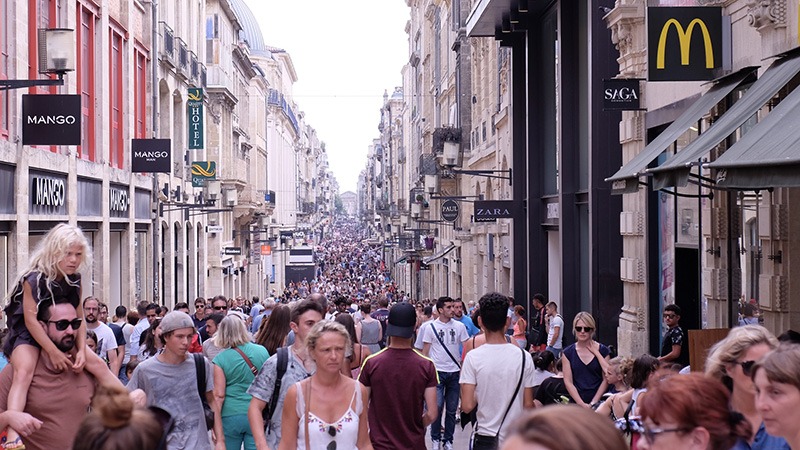
Kyoto is the latest city to respond to overtourism with a steep hotel tax, which could be as high as CAD$92 per night.
Around the world, popular cities are trying to combat hordes of tourists by introducing various types of regulations; often in the form of visitor or hotel taxes.
CNN notes that European cities, including Amsterdam and Venice, have introduced tourism taxes and banned cruise ships in historic parts of town. Other cities, including Barcelona and New York, have announced bans or restrictions on vacation rental platforms such as Airbnb.
The overtourism alarm was sounded as far back as 1996, when Dutch author and anthropologist Jeremy Boissevain talked about how decades of mass tourism was impacting popular destinations in Europe and around the world.
Nearly 30 years later, the world is still grappling with how to control armies of tourists intent on snapping selfies in front of the Sagrada Familia or running wild through the Colosseum. “The whole industry needs to be a lot more proactive …. because more and more people are coming through the floodgates and coming into these destinations,” Paula Vlamings, chief impact officer of global nonprofit Tourism Cares, a pioneer in promoting sustainable tourism, told CNN Travel.
Travel and Leisure reports that Kyoto joins other major Japanese cities, including Tokyo, Osaka, and Kanazawa, in implementing accommodation taxes. The magazine said Mayor Koji Matsui believes the tax hike, which will come into effect next year, is crucial for sustainable tourism and notes the extra money will be used to enhance infrastructure, improve visitor experiences, and address residents’ concerns about overtourism.
In Kyoto, rooms priced between 20,000 JPY and 50,000 JPY (CAD$184 to $459, or $128 to USD$320) will see a doubled hotel tax of 1,000 JPY (CAD$9.17 or USD$6.40). The maximum hotel tax will jump to a hefty 10,000 JPY per person per night (CAD$92 or USD$64) for luxury accommodations exceeding 100,000 JPY ($CAD917 or USD$640).
In a story with the headline “39 Places Cracking Down on Overtourism, From Bali to Italy,” The Independent says UNESCO has warned of potential damage to protected areas in popular destinations.
“For destinations the world over, there’s a delicate balance to be struck,” The Independent said. “Following the pause of tourism during Covid restrictions, many places reliant on visitors were champing at the bit to lure back holidaymakers once travel opened up again. But there are tourists – and then there are too many tourists.
“Post-pandemic, the influx of millions of visitors to tourist-strewn towns has, in some cases, risen to levels above those seen in 2019. Too much tourism threatens to disrupt residents and natural ecosystems and contribute to transport pollution.”
Fodor’s recently published a “No Travel List” and suggested reconsidering a visit to “suffering cultural hotspots” such as Bali, Koh Samui, The British Virgin Islands, Barcelona, and Kerala, India.
“These locations are popular for good reason—they are stunning, intriguing, and culturally significant,” Fodors said. “However, some of these highly coveted tourist spots are collapsing under the burden of their own prominence.
“A key factor in these challenges is often the tendency of governments to prioritize visitor experiences over the well-being of local residents. This can lead to irreversible changes in these destinations, making them prohibitively expensive, homogenized, or even destroyed. And let’s face it: visiting such places rarely results in happy travelers. Navigating cities packed with tourists is frustrating; sightseeing in towns where locals resent your presence is upsetting; and wandering through nature littered with trash is depressing.”
National Geographic says Amsterdam has the highest tourist tax of any European city, charging 12.5% of the nightly rate for accommodation at hotels, campsites, and serviced apartments.
It's not a hotel tax, but tourists who didn’t book their accommodations in Venice last spring and summer were asked to pay USD$5.40 per day to enter the city on specified dates. National Geographic said Lisbon last September was to double its tourist tax from USD$2.15 to USD $4.30.






